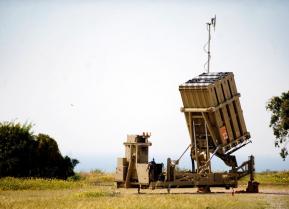Israel’s Invasion of Gaza Will Not Succeed
Indeed, a ground invasion will enhance the pre-existing ideological and material reasons why Israel cannot destroy Hamas or stifle Palestinian resistance.
As Israel finalizes its plans for a would-be ground invasion into Gaza following a massive escalation of violence in October, many experts and analysts are correctly asking important questions about the substance of such a military decision.
Day-after inquiries are crucial to any serious and successful operation that achieves Israeli objectives, raising basic concerns that Tel Aviv is failing to consider under current circumstances.
Indeed, a ground invasion will enhance the pre-existing ideological and material reasons why Israel cannot destroy Hamas or stifle Palestinian resistance.
Urban combat is notoriously brutal, as evidenced by recent Middle East battles like Fallujah, Aleppo, Mosul, and Raqqa. Israel and its supporters acknowledge this reality. In parallel, Israel is amassing hundreds of thousands of troops along its borders, with a focus on the disputed borders with Gaza. Israeli defense minister and war cabinet minister Yoav Gallant released vague details of the operation, noting a three-phase effort involving land, sea, and air operations that will contribute to a years-long effort to establish a new governing and security entity in Gaza.
While Israel understandably refuses to share further details of their military and post-military operation, Washington continues to provide full support to the Israeli Defense Forces (IDF). Israel’s military brass noted the unprecedented level of support for their planning efforts – highlighting that U.S. support is currently at levels they have not previously experienced.
Yet even with Washington’s support, Israel faces an extraordinary task if it invades Gaza. The blockaded Palestinian enclave is one of the most densely populated areas on Earth, constituting roughly 2 million people across a 141-square-miles. Hamas is likely prepared for any IDF operation, laying traps while operating via a vast network of tunnels. The tunnel component presents the largest challenge to any Gaza invasion because subterranean warfare is more difficult than urban combat, according to military experts.
Such details suggest the ensuing battle will be a long-term fight, resulting in substantial casualties that include military and non-military actors. Worse, the operation risks opening new fronts for Israel to its north with the Lebanon-based and Iran-backed Hezbollah and other Iran-backed militias in places like Syria. Such an escalatory pattern could envelop the region in a brutal conflict unseen since World War II.
Even if actors avoid regional war – a possibility given signals by most parties to prevent such an outcome – the scale of destruction and violence in Gaza make Israel’s objective of eliminating Hamas and instilling a new governing and security regime impossible.
On a physical level, Israel will further pummel Gaza into an unlivable space for civilians – already a long-running issue due to Israel’s de facto occupation via its 16-year blockade of the Palestinian territory. Israel continues to indiscriminately target civilian infrastructure, including residencies, hospitals, shelters, religious sites, and utilities, directly or indirectly. Over 1.4 million Palestinians are reportedly displaced. Most will not have homes to return to soon, let alone if the conflict expands and prolongs.
On an ideological level, Palestinian resistance is and will continue to be strong against Israel’s illegal occupation. Palestinian resistance – violent or peaceful – continues to sustain itself due to Tel Aviv’s deepening occupation that denies them basic rights and often leads to their death. As previous wars prove, pummeling Palestinian communities failed to stifle resistance. In fact, it has likely contributed to the growing approval of violent resistance that is particularly prominent among Palestinian youth, who have only known the occupation for their entire lives. The right to self-determination and equal rights is not extended to Palestinians, even in a failed post-Oslo space that centered peaceful negotiations between the Israelis and Palestinians to establish a Palestinian state. As such, more Palestinians are hardening their stance against Israel – a common trend throughout human history and the foundation of democracies such as the United States.
As such, Israel’s operation will fail to destroy Hamas because it will fail to destroy the principles undergirding Palestinian political thought. The root cause of this conflict is the illegal and armed occupation of the Occupied Palestinian Territories (OPT). A segment of the Palestinian population will continue to support violent resistance so long as Israel continues this.
Hamas, as a violent liberation movement, will not be destroyed within this context as it is transnational, with members in Gaza, Lebanon, Syria, Turkey, and Qatar. Even if these countries remove Hamas members, a new group will take its place. Those hoping for a post-Hamas context that includes the Palestinian Authority (PA) or an Arab coalition force live in a fantasy land as the former is hugely unpopular in the Palestinian street, and the latter would rightly be viewed as another occupation force. The latter also assumes that Arab states will buy into this approach – an unlikely outcome without progress on a Palestinian state.
Ultimately, history proves bombs cannot wipe out a terror or liberation organization because this approach ignores the root causes that led to that group’s creation. The Islamic State (IS) still lingers in Syria and elsewhere; the Taliban controls Afghanistan again; and Al-Qaeda continues to thrive in places like Yemen. It is folly to assume that a new outcome can be achieved in Gaza.
About the Author
Alexander Langlois is a foreign policy analyst focused on the Middle East and North Africa. He holds an M.A. in International Affairs from American University’s School of International Service. Follow him at @langloisajl and @langloisajl.bsky.social.
Image Credit: Shutterstock.


